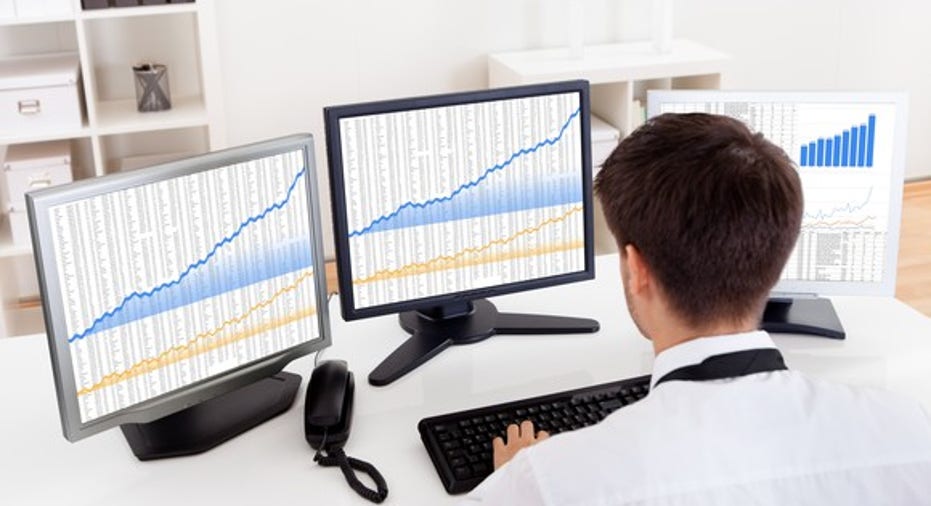What Is the Dow Jones Industrial Average?

Image source: Getty Images.
The Dow Jones Industrial Average (DJIA), often referred to as the "Dow Jones" or simply as "the Dow," is a price-weighted average of the stocks of 30 large American publicly traded companies. Created by Charles Dow in 1896, it is the most well-known U.S. stock index and is used to gauge the market's performance from day to day.
What is a price-weighted index?
In a nutshell, a price-weighted index means that higher-priced stocks have more influence over the index's performance than lower-priced ones. Consider a fictional index made up of just three stocks, with share prices of $10, $30, and $60. Since the highest-priced stock makes up 60% of the total combined value of the three, a 10% gain in that stock's price would raise the index by 6%. In contrast, a 10% gain in the lowest-priced stock would only result in a 1% rise in the index.
In the case of the Dow Jones Industrial Average, the prices of all 30 stocks in the index are added together and then divided by the "Dow divisor," which changes over time due to stock splits and other events. The divisor is much less than one, which is why the value of the index is greater than the sum of the stock prices.
The current "Dow 30"
As of the most recent adjustments, which went into effect after the market's close on March 18, 2015, here are the 30 stocks that currently make up the DJIA, listed in alphabetical order.
- 3M
- American Express
- Apple
- Boeing
- Caterpillar
- Chevron
- Cisco Systems
- Coca-Cola
- DuPont
- ExxonMobil
- General Electric
- Goldman Sachs
- Home Depot
- IBM
- Intel
- Johnson & Johnson
- JPMorgan Chase
- McDonald's
- Merck
- Microsoft
- Nike
- Pfizer
- Procter & Gamble
- Travelers
- UnitedHealth Group
- United Technologies
- Verizon
- Visa
- Wal-Mart
- Walt Disney
It's worth noting that these components change frequently. Apple, Goldman Sachs, Nike, and Visa have all been added to the index within the past three years. Also, only one of the Dow's original 12 components (General Electric) from 1896 remains on the index today.
Drawbacks of the DJIA
Although it's the top number you see when you look at any stock market coverage, there are some shortcomings to the Dow Jones Industrial Average.
Most obviously, the Dow Jones only includes 30 stocks. There are more than 5,300 common stocks that trade on the NYSE and Nasdaq, so the Dow 30's performance may not be the best indicator of how the overall market is doing.
Also, the price-weighting means that some of the Dow components have much more influence on the index than others. For example, as of this writing, Goldman Sachs trades for about $148 per share while Pfizer trades for just $34.60. Yet, a $1 move in either stock would have the same effect on the index. In other words, a move in Goldman Sachs' share price would have more than four times the effect of a similar (percentagewise) move in Pfizer.
For these reasons, the broader and market-cap weighted S&P 500 is widely accepted as a better indicator of how the stocks of large U.S. corporations are performing.
This article is part of The Motley Fool's Knowledge Center, which was created based on the collected wisdom of a fantastic community of investors. We'd love to hear your questions, thoughts, and opinions on the Knowledge Center in general or this page in particular. Your input will help us help the world invest, better! Email us atknowledgecenter@fool.com. Thanks -- and Fool on!
The article What Is the Dow Jones Industrial Average? originally appeared on Fool.com.
The Motley Fool owns shares of and recommends Apple, Chevron, Coca-Cola, Johnson and Johnson, Nike, Verizon Communications, Visa, and Walt Disney. The Motley Fool owns shares of ExxonMobil, General Electric, and Microsoft and has the following options: long January 2018 $90 calls on Apple and short January 2018 $95 calls on Apple. The Motley Fool recommends American Express, Cisco Systems, Home Depot, Intel, Procter and Gamble, and UnitedHealth Group. Try any of our Foolish newsletter services free for 30 days. We Fools may not all hold the same opinions, but we all believe that considering a diverse range of insights makes us better investors. The Motley Fool has a disclosure policy.
Copyright 1995 - 2016 The Motley Fool, LLC. All rights reserved. The Motley Fool has a disclosure policy.



















